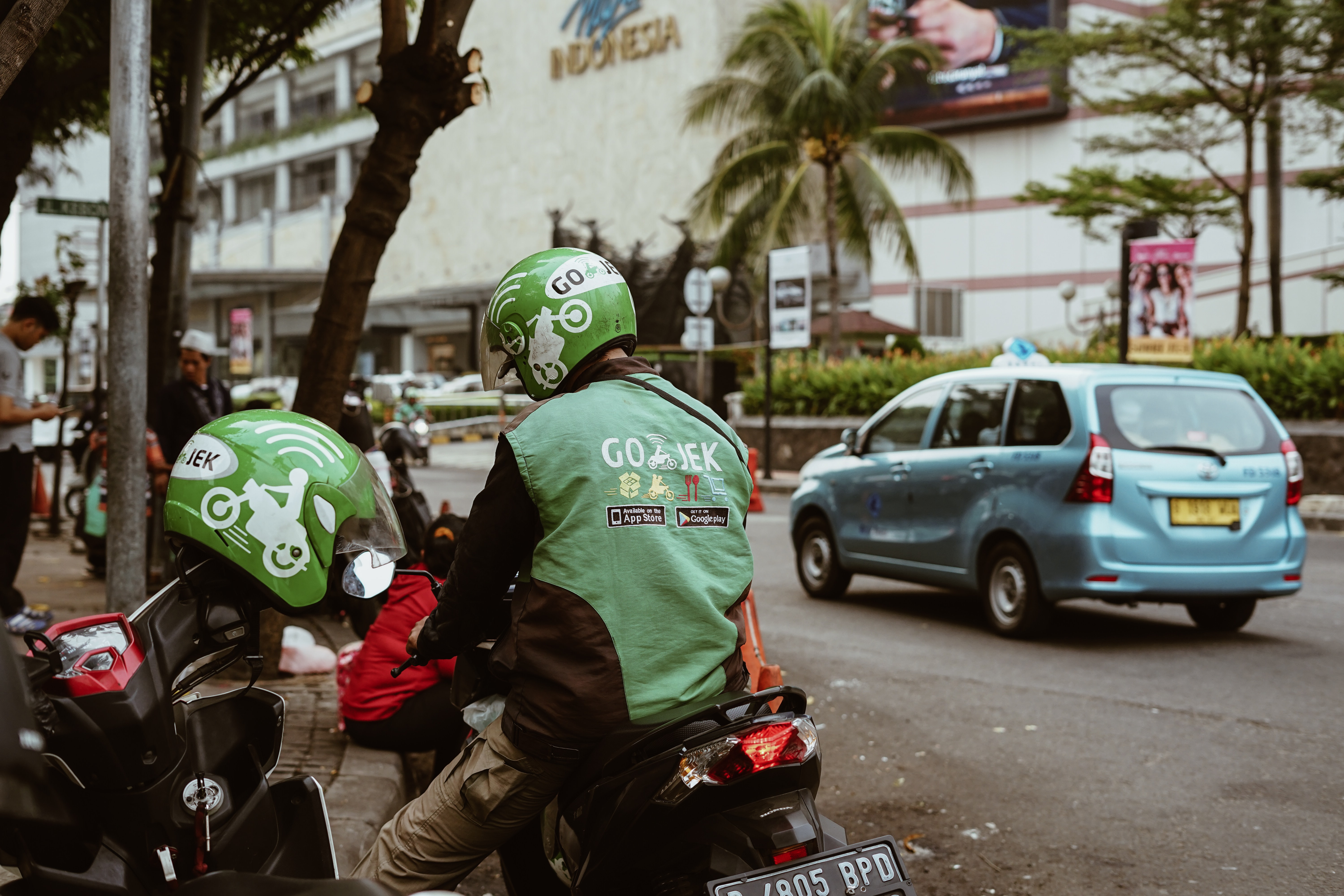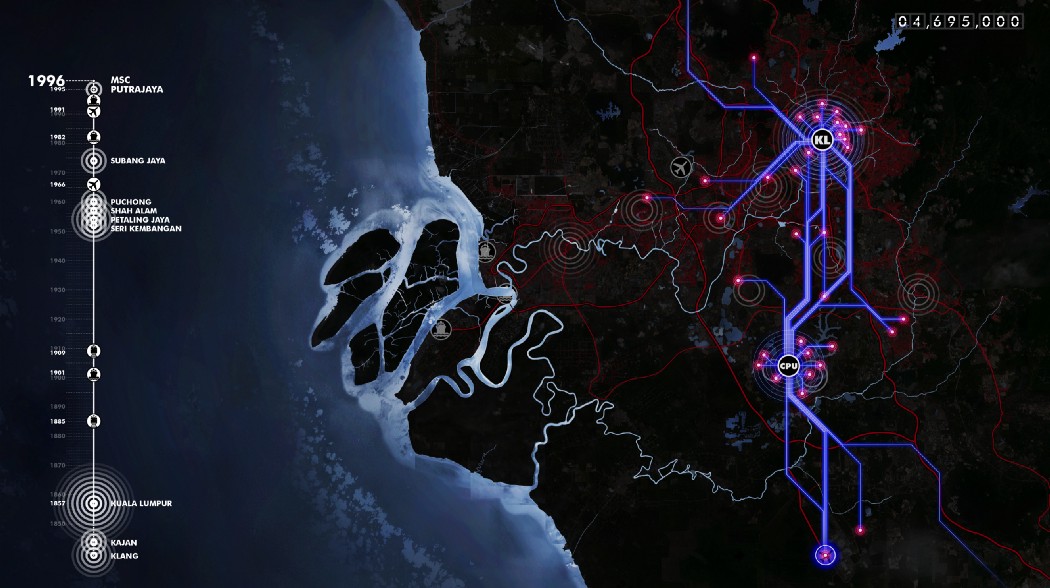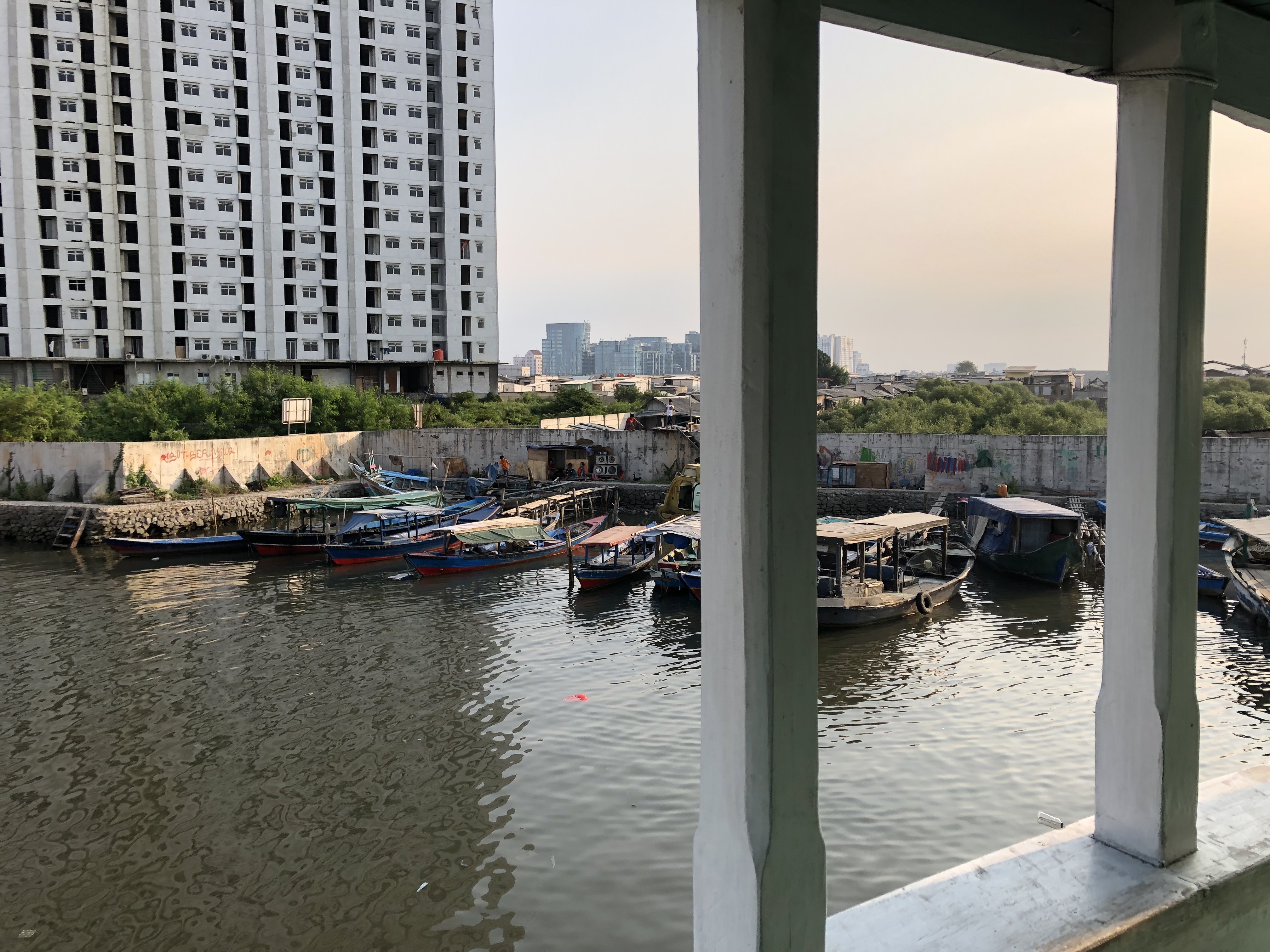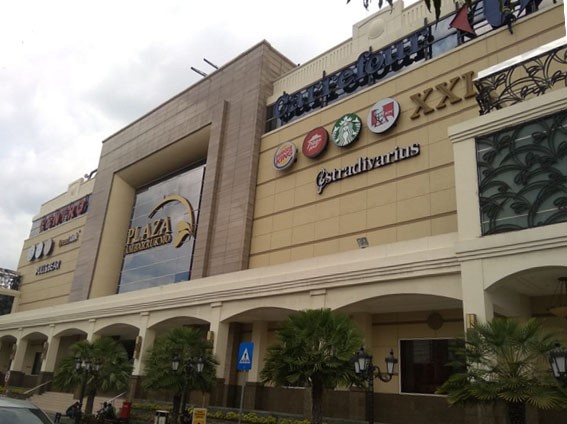The impact of digitalization affects urban informal workers in various ways. On the one hand, it might help to ease some of the constraints in their work, but alternatively, the restructuring of business models and forms of employment might lead to the rise of new competitors in their field, writes Tamaki Endo
_______________________________________________
‘Compressed development’ (Goto, Endo and Ito 2020, Whittaker et al 2020) has brought about unique multi-layered urban labour markets in middle income countries. Regarding Bangkok’s labour market, top-end white collar workers, who work for multinationals and local conglomerates which operate in globally connected economic networks, have increased. At the same time, about 30% of Bangkok’s workers are in informal employment (NSO 2017). Furthermore, Thailand is both a source of and destination for international migrant workers, absorbing foreign migrant workers (such as Burmese workers) in its lowest-paying jobs.
The informal economy has been a source of livelihood and job opportunities for the poor as well as part of urban dynamics, providing necessary urban services. Traditional development economics assumed that the informal economy is a temporary phenomenon that occurs during the development period, to shrink and disappear once a country has developed. However, contrary to this earlier discussion, globalisation, urbanisation and risk responses of the poor have encouraged its reproduction and, sometimes, expansion (Endo 2014).
Among informal economy workers, bike taxi and taxi drivers gain wide policy and research attention in the digitalising society due to the possibility of fierce competition from alternative forms of the platform economy, or ‘gig economy’, such as Grab, Uber and Gojek. Bike taxis first emerged in the outskirts of Bangkok in the 1980s, when the city was suffering from severe traffic jams. By 1988, it was estimated that 16,000 bike taxis existed in Bangkok (Nipon 1991). Thereafter, the number increased steeply, and at the time the registration system by Thaksin administration was inaugurated in 2005, about 110,000 vehicles were registered. The number of bike taxi business locations increased nearly three-fold from 1,570 locations in 1994, to 4,400 locations in 2003 (Endo 2014). Now, officially registered spots total about 6,000 and it is “one of the most diffused means of transportation in Bangkok, operating daily more than ten times the numbers of trips operated by the city’s subway and SkyTrain combined” (Sopranzetti 2018, 2021).
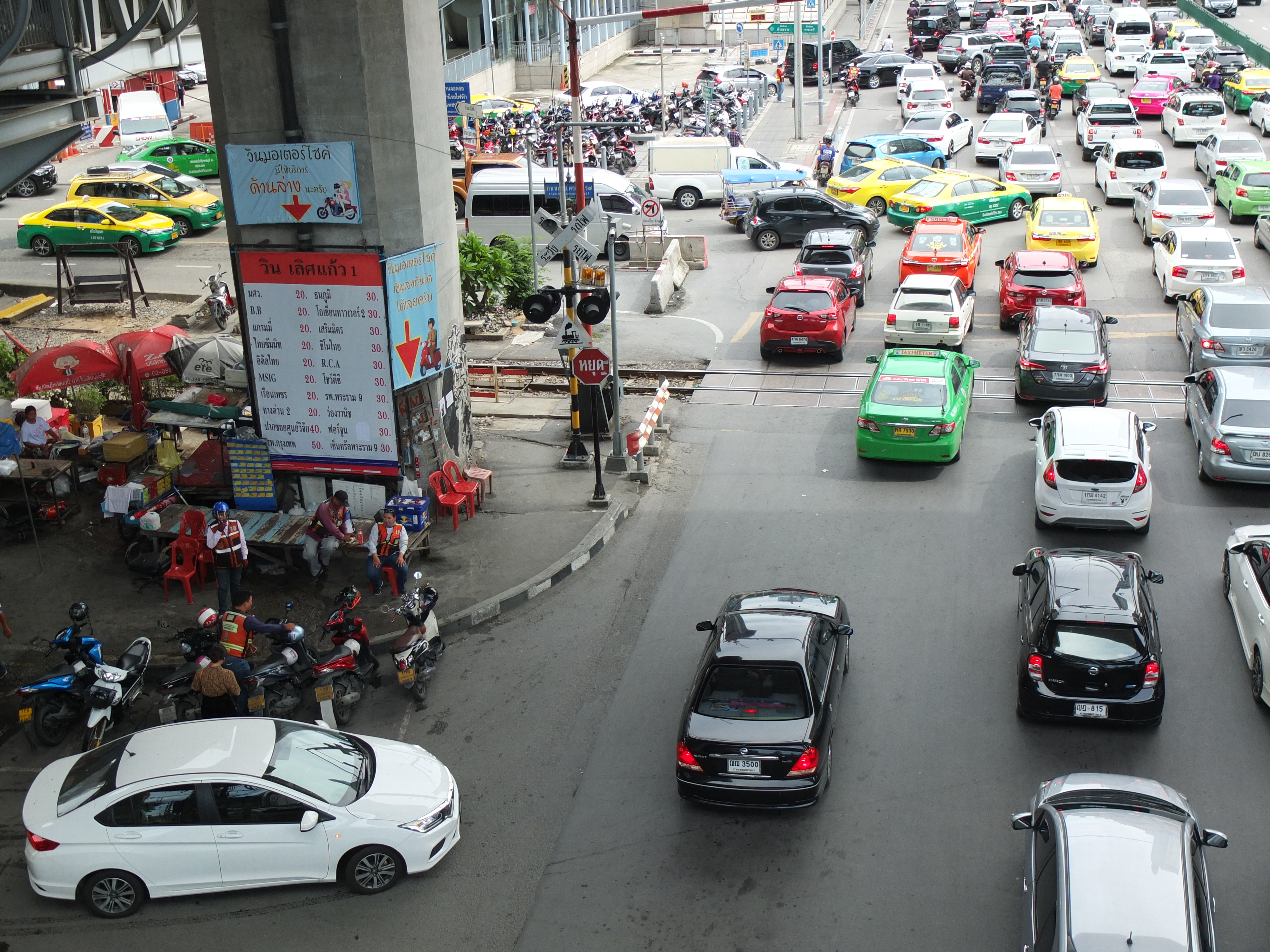
From the labour perspective, the emergence of the platform economy is often seen negatively, with concerns about insecurity and the exploitation of drivers (Kriangsak and Akkanut, 2018). Working conditions and social security are surely important issues to discuss. However, degree of impact, penetration of platform economy as well as worker and customer responses vary among cities and countries, depending on the socioeconomic conditions of the society. At least in Bangkok, simple replacement of ‘analogue informality’ by ‘digital informality’ is not yet happening. In the following section, I would like to explore responses of ‘analogue informality’ to the new ‘digital informality’ in Bangkok with regard for socioeconomic context.
Ito (2020) clarified that digitalisation and social transformation often progress faster in emerging countries because of potentiality to overcome problems and constraints those countries face. For example, in a society where most of the population do not have access to landline telephones at home, the mobile phone possession rate increases much faster once price decreases. Ride share services can provide safety and reliability because there is no space for informal negotiation between drivers and customers over payment and route. It also helps time management because of punctuality and transparency, and therefore improves efficiency. Ride share services thus spread rapidly in many neighbouring countries, such as Indonesia.
The problems of overcharging strangers, often foreign tourists, and high demand for improved efficiency by the middle class are also observed in Bangkok, which suggest that there is potentially a high demand for taxi app services. However, bike taxi app services struggled to introduce their business model in the city. Resultingly, Grab has been focusing more on food delivery. Regarding taxis, both Grab and Uber became available and regular taxis can register and operate as both (Uber do not operate anymore. Use of a personal car for Grab is now under discussion for legalisation). Payment can be chosen from cash, credit card on app and bank account transfer. This recent situation was not created due to demand factors. Rather my assumption is that the urban informal economy (‘analogue informality’) is relatively ‘organised’ in Bangkok, and therefore tension and conflict with ‘digital informality’ were collectively exhibited, which slowed down the expansion of new services.
As mentioned before, new digital technology also brings benefits to drivers. Around a decade ago, I asked a taxi driver at my research site how he first studied all the roads in Bangkok, as he started driving a taxi immediately after he migrated from a village. He said, “The day after I arrived Bangkok, I got on buses all day with a bus map in my hand.” Today, he doesn’t need to go all over Bangkok in hot and humid open-air buses, but can navigate using a mobile phone. He won’t get lost in the unfamiliar city. The entry barrier was thus lowered.
However, when digitalisation changes the business model by replacing existing services, it becomes a different story. The protests of both taxi and bike taxi associations against legalising Grab and Uber have often been reported since platformers tried to launch services (For example, Grab was first launched in 2015). Sometimes, this induces fights among drivers on the street. As platformers struggled to introduce new business models in the city, many of them attempted to contact bike taxi associations to ask for cooperation with both business operation and recruitment of drivers. When I interviewed a leader in September 2018, possibilities for cooperation were still open, but it appears they could not find agreement on mutual benefits. We should not look at the cases simply as reactions from the vested interests of ‘analogue informality.’ Protests are not simply for the protection of livelihoods but struggles for independence, which self-employed workers in Thailand highly value.
Tracing the history of birth and development of drivers’ association gives some insight. Policy during former prime minister Thaksin’s administration firstly triggered the motivation for connecting and organising themselves among workers. Thaksin defined self-employed and agricultural workers who are not covered by social security as Settakit Nokrabob (the economy outside the system) or Reangan Nokrabob (labour outside the system) and the formal economy as Nairabob (in-system). He tried to introduce a registration scheme for drivers. Two main aims of this policy were, firstly, to eliminate brokers or irregular activities behind the drivers and bring these occupations ‘into the system.’ In the longer term, this enables the organisation of the tax collection system from the self-employed. The second reason was to strengthen the safety net (Endo 2014).
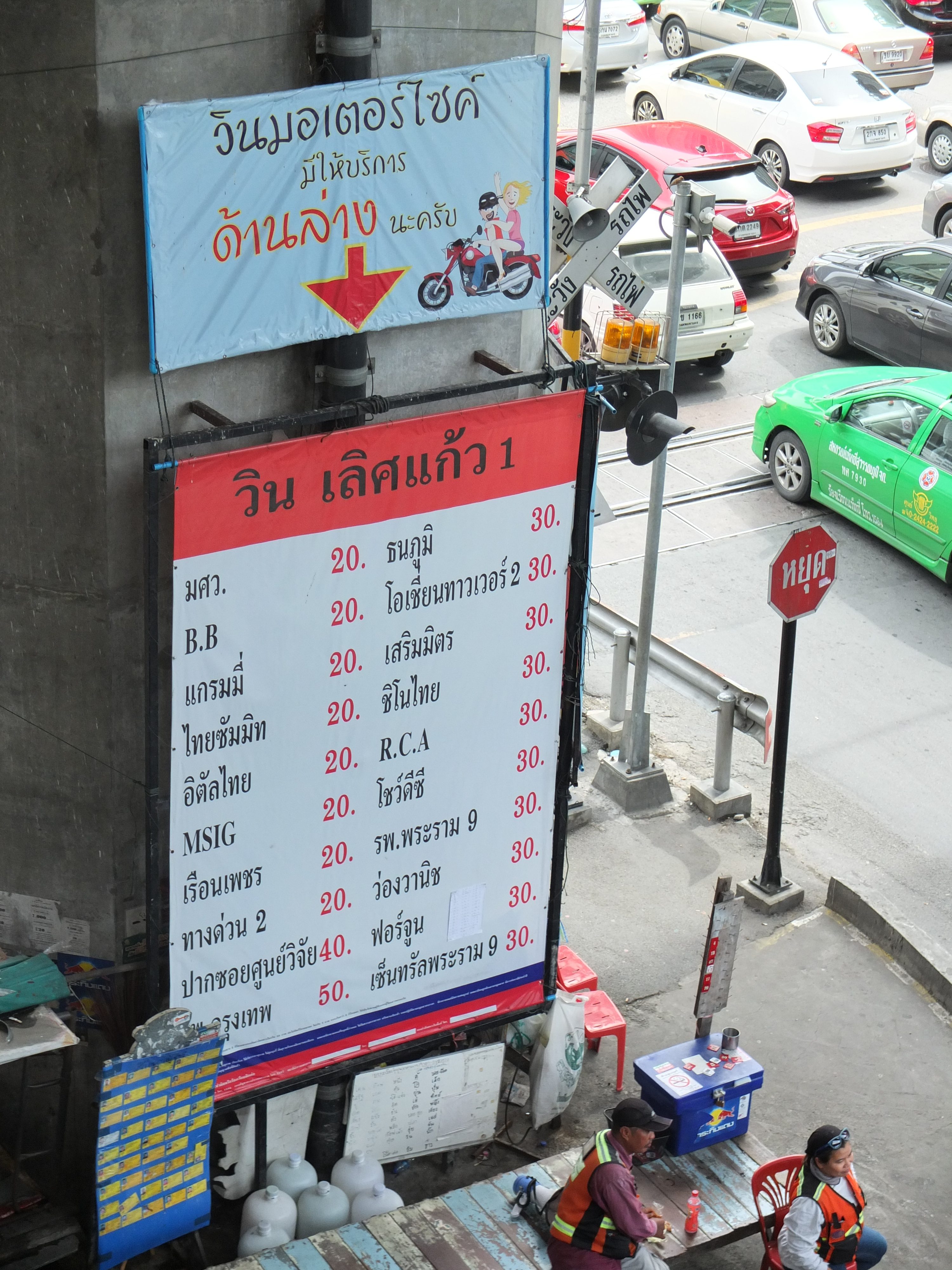
According to the above interview, the leader and his colleagues were at first against this registration scheme. However, their attitude soon changed. The entrance to each side street had (and still has) a bike taxi station. “There were brokers at each street taking control. Sometimes, we had to pay bribes to the police, too. Once I understood that the aim of Thaksin’s policy was to eliminate them, I decided to support and register instead”, he said. Still at the initial stage of protesting the new policy, a loose network of drivers was created. Later, this informal network became a group of red shirts in the political protest against the coup d’état, resulting in the formation of an association in 2010 (for the mobilisation of bike taxi drivers, see the rich ethnographic work of Sopranzetti 2018). Recently, the association is the window for negotiations with platformers as well as the frontier of collective protest. Sopranzetti (2021) shows how this protest strategically uses the term ‘Nokrabob,’ once used for themselves, to define newcomers or platformers as ‘Nokrabob’ and themselves as ‘Nairabob’.
New business models might threaten not only their livelihoods but their independence. The initial doubts of drivers toward Thaksin’s registration scheme at an early stage were protests against the intention of ‘organising drivers from the top.’ However, they turned to accept the scheme once they understood that one of the policy aims is to destroy ‘vested interests’ or in other words, the existing patron-client relationship between brokers and drivers. Even as the leaders who organise the order of drivers on each street remain, it was expected that the vertical relationship would be restructured into a horizontal relationship. From the driver’s perspective, a new app service under a platformer might look like ‘organising drivers by digitalization from the top,’ since all sales, numbers of trips and other data will be monitored by the platformer. Added to that, part of each sale will be subtracted. One of the issues concerning the association was the commission rate. The platformer usually takes 15-25% from the sale.
While the bike taxi app services failed to achieve agreements, they entered mainly into food delivery services, as mentioned. For example, Grab has been successful in this new service, enjoying 50% of the market share in food delivery. The food delivery service has expanded rapidly during the pandemic, reaching 2.8 billion dollars in 2020. In this sense, Grab has succeeded in finding a niche in a newly growing market.
In Bangkok, where the bike taxi service is organised at each street with its fixed rules and business model, erasing the ‘organised’ but ‘analogue informality’ will not be easy. Newcomers need to look for ways to coexist with or utilise this ‘analogue informality,’ as seen in the case of taxi services, or if they wish to compete, attractive conditions should be proposed to the workers. Further research on how drivers and customers react to changing market situations, whether workers move between ‘digital informality’ and ‘analogue informality,’ as well as conditions of workers in both sides are needed. Digital applications for societal issues and constraints, as well as reactions and perceptions of people toward these changes vary among different societies. This is not simply explained by market mechanisms. Political/social economy and area studies have roles to play, and therefore these situations are open for comparison.
References:
Endo, Tamaki. 2014. Living with Risks: Precarity and Bangkok’s urban poor, NUS Press association with Kyoto University Press.
Goto, K., Endo, T., and A. Ito. 2020. The Asian Economy: Contemporary Issues and Challenges, Routledge.
Ito, Asei. 2020. Digital Emerging Economies: Leapfrogging the North or rise of surveillance society?, Chuko Publishing (in Japanese).
Kriangsak Teerakowitkajorn and Akkanut Wantanasombut, 2018. “Flexibility but not security in Thailand’s platform economies”, New Mandala, Posted on July 10th, 2018. Available at: https://www.newmandala.org/flexibility-not-security-thailands-platform-economies/
Nipon Poapongsakorn. 1991. “The Informal Sector in Thailand” in A. Lawrence and Mohamed Salandine (eds), The Silent Revolution: The Informal Sector in Five Asian and Near Eastern Countries, California: Ics Pr.
NSO. 2017. The Informal Employment Survey 2017, NSO.
Sopranzetti, Claudio. 2018. Owners of the Map: Motorcycle Taxi Drivers, Mobility, and Politics in Bangkok, University of California Press.
Sopranzetti, Claudio. 2021. “Shifting informalities: Motorcycle taxis, ride-hailing apps, and urban mobility in Bangkok”, Geoforum, Online access May 2021. Available at: https://doi.org/10.1016/j.geoforum.2021.04.007
Whittaker, Hugh, Timothy Sturgeon, Toshie Okita, and Tianbiao Zhu, 2020. Compressed Development: Time and Timing in Economic and Social Development, Oxford University Press.
_______________________________________________
About the research
This blog post is based on research of JSPS KAKENHI 19KK0318 (Project on inclusion and exclusion in Thailand) and JSPS KAKENHI 19H00553 (Project on Urban Informality in Asia).
*The cover image is copyright of the Author.
* The views expressed in the blog are those of the authors alone. They do not reflect the position of the Saw Swee Hock Southeast Asia Centre, nor that of the London School of Economics and Political Science.


